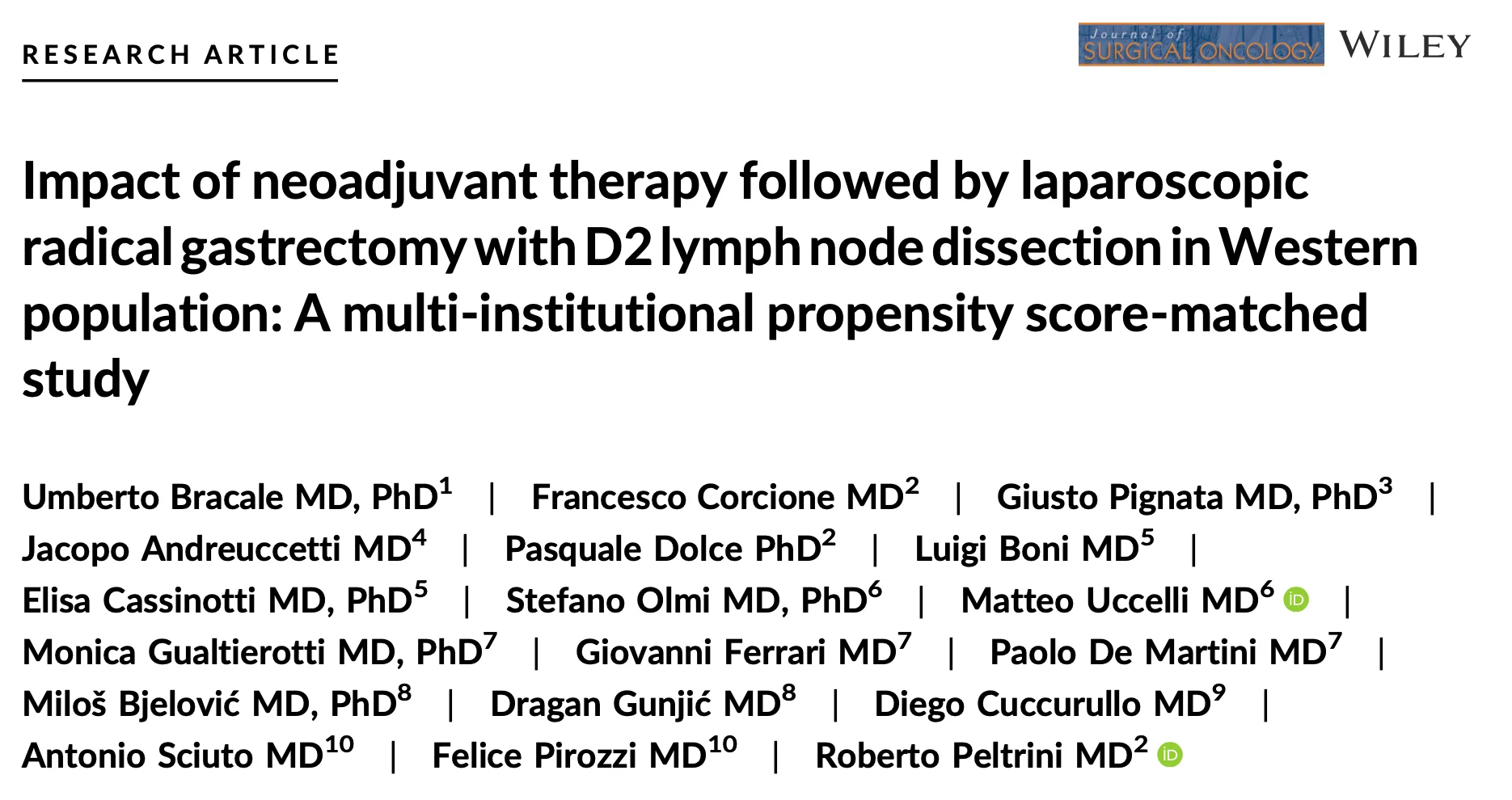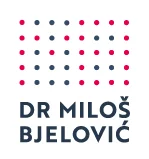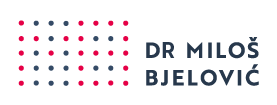
Neoadjuvant therapy followed by laparoscopic gastrectomy for cancer
Background and Objectives: In the setting of a minimally invasive approach, we aimed to compare short and long‐term postoperative outcomes of patients treated with neoadjuvant therapy (NAT) + surgery or upfront surgery in Western population.
Methods: All consecutive patients from six Italian and one Serbian center with locally advanced gastric cancer who had undergone laparoscopic gastrectomy with D2 lymph node dissection were selected between 2005 and 2019. After propensity score‐matching, postoperative morbidity and oncologic outcomes were investigated.
Results: After matching, 97 patients were allocated in each cohort with a mean age of 69.4 and 70.5 years. The two groups showed no difference in operative details except for a higher conversion rate in the NAT group (p=0.038). The overall postoperative complications rate significantly differed between NAT + surgery (38.1%) and US (21.6%) group (p = 0.019). NAT was found to be related to a higher risk of postoperative morbidity in patients older than 60 years old (p = 0.013) but not in patients younger (p = 0.620). Conversely, no difference in overall survival (p = 0.41) and disease‐free‐survival (p = 0.34) was found between groups.
Conclusions: NAT appears to be related to a higher postoperative complication rate and equivalent oncological outcomes when compared with surgery alone. However, poor short‐term outcomes are more evident in patients over 60 years old receiving NAT.



Leave a Reply